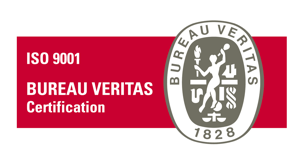Article

Anti-Anti-Suit Injunctions in IPcom vs. Lenovo: focus on the French litigation
French courts have recently been confronted to the first IP dispute involving a so-called “Anti-Anti-Suit Injunction” initiated in France. The litigation, started before the French court of first instance (Tribunal de grande instance de Paris) and pursued on appeal before the French court of appeal (Cour d’appel de Paris), involved the German patent licensing company IPCom and the Chinese IT equipment provider Lenovo.
IPCom was founded in 2007 and started its licensing operations based on a patent portfolio in the field of mobile telecommunication acquired from Bosch. IPCom is a non-practicing entity (NPE) engaged into multiple lawsuits against mobile equipment manufacturers, such as GSM or UMTS mobile phones, on the basis that it holds patents that are essential to mobile telecommunication standards. European patent EP 1 841 268 B2 was granted to IPCom based on a divisional application filed in 2007 by Bosch, and directed to an “access of a mobile station to a random access channel in dependence to its user class.” The EP268 patent survived opposition and appeal proceedings, and was maintained in amended form by a 2018 decision of a Board of Appeal of the European patent office. In its amended form it includes a single claim directed to a “mobile station (...) for operation in a UMTS mobile radio network”. One can assume that it was considered by IPCom essential to the UMTS (3G) standard promulgated in Europe by the European Telecommunication Standard Institute (ETSI), declared as such to ETSI, and offered for license as part of a standard essential patent (SEP) portfolio to Lenovo, based on 3G compliant Lenovo products sold in European countries such as the United Kingdom, Germany and France. For its licensing, IPCom was bound by its 2009 declaration to the European Commission regarding mobile telecommunication standard-essential patents acquired from Bosch and its 2014 general declaration to ETSI regarding licensing of patents essential to ETSI standards, to offer licenses to its patents essential to an ETSI standard under Fair, Reasonable and Non-Discriminatory (FRAND) terms and conditions.
The parties engaged into FRAND licensing discussions, but could not agree on FRAND terms for the licensing of allegedly standard essential patents asserted by IPCom. This eventually led Lenovo to initiate on March 14, 2019 proceedings against IPCom before the District Court of the Northern District of California, based on inter alia IPCom’s alleged failure to offer Lenovo a FRAND license to its alleged SEP portfolio. In its complaint, Lenovo asked the Court to determine global FRAND terms for IPCom’s SEP portfolio. On September 18, 2019, Lenovo extended the proceedings to include a Motion for Anti-Suit Injunction, seeking to prevent IPCom from furthering infringement proceedings initiated in the United Kingdom in July 2019 based on the EP268 patent, but also from initiating any other proceedings in any jurisdiction worldwide based on the patents concerned by the FRAND license. A hearing for this Motion was planned on November 14, 2019.
IPCom reacted quickly and on October 24, 2019 lodged a petition with the juge des référés, a judge of the French Court of First Instance in charge of emergency proceedings, seeking withdrawal of this Motion. Such petition against an Anti-Suit Injunction is commonly referred to as an “Anti-Anti-Suit Injunction”.
The decision was released by the French Court on November 8, 2019.
First Instance Proceedings
Lenovo raised a series of objections against this petition.
Among these was the alleged lack of jurisdiction of the French judge for this case. According to Lenovo, even though the French affiliates of the Lenovo and Motorola groups were parties to the litigation, no request was filed against those French affiliates, except for a request for a judgment against all the defendants (including the U.S. affiliates). Further, Lenovo claimed that hypothetical damages suffered by IPcom following the grant of an anti-suit injunction would only relate to the US territory, and not France.
The French judge dismissed this objection, indicating that if the anti-suit injunction was granted, IPCom would suffer damages on French territory based on its unability to use the French part of its European patent EP268.
Another objection raised by Lenovo was that the motion of Anti-Anti-Suit injunction filed by IPCom created a situation of international connexity, in view of the pending proceedings in the United States to set conditions of a FRAND license. Lenovo pointed out that the same parties were involved in those proceedings, which were related thereby creating a risk of contradiction between the resulting court decisions.
The French judge also dismissed this international connexity argument, pointing out that the U.S. and French proceedings were dealing with different questions. The judge concluded that there was no situation of international connexity, as the US litigation was about setting conditions for a FRAND license, and the French litigation concerned preserving the right of a patent proprietor to exercise his rights on the French part of a European patent. It is worth noting that the judge did not comment on the fact that the patent in suit was included in the list of patents considered in the U.S. litigation.
Last, and in light of arguments raised by IPCom, the French judge granted the motion for Anti-Anti-Suit injunction, emphasizing that an Anti-Suit injunction was against the French international public order, and would interfere with the jurisdiction of the Court. Accordingly, the French judge ordered withdrawal of the motion for Anti-Suit injunction, and forbade Lenovo from filing any further motion for Anti-Suit injunction, with a penalty of € 200,000 per violation and per day of delay from the judgment.
This decision has already been commented as being a strong political gesture of a French Court, despite some interrogations about the consistency of the reasons given in the decision. Indeed, the Court granted the motion in order to prevent a foreign decision from interfering with its jurisdiction. By ordering the withdrawal of the Anti-Suit injunction however, the French judge also interfered with the jurisdiction of a foreign Court.
Appeal Proceedings
Lenovo withdrew its motion for Anti-Suit injunction, and on November 22, 2019 filed an Appeal to the First Instance Decision. Meanwhile, IPCom sued Lenovo on November 14, 2019 in infringement proceedings of the French part of the EP 268 patent.
The Paris Appeal Court rendered its decision on March 3, 2020.
About territorial jurisdiction, Lenovo maintained its arguments and insisted that the grant of an anti-suit injunction to Lenovo would not incur damages for IPCom the French territory. Lenovo argued that it had already accepted to take a FRAND license under the patent in suit, according to conditions that would be set in the co-pending litigation in the U.S. This objection was dismissed by the Court, stating that Lenovo’s commitments were not to be taken into account in examining whether the French judge has jurisdiction over the case. The Court added that its jurisdiction over this case was also established by its competency for any infringement case, including based on the patent in suit, and noted that an infringement case was precisely what the motion for anti-suit injunction was trying to prevent.
On the merits, the Appeal Court then confirmed the First Instance Decision regarding the withdrawal by Lenovo of its motion for Anti-Suit Injunction, but overturned the decision to prevent Lenovo from filing equivalent motions in the future.
Interestingly enough, the reasons for the Appeal Decision are quite different from those of the First Instance Decision.
Indeed, the Appeal Court acknowledged that an Anti-suit Injunction to IPCom would be a temporary measure, which would only last until the end of the proceedings for setting the conditions of the FRAND license. It however underlined that those proceedings, of uncertain outcome, could last several years, and therefore deprive the patentee IPCom from a legitimate right of using its patent before its imminent expiration on February 15, 2020. The Court explicitly indicated that this in itself constituted a “manifestly unlawful disturbance”, independently of the assessment of the conformity with the French international public order of an Anti-Suit Injunction. The Court thus set aside the discussions about public order and interferences between jurisdictions.
The Appeal Court then indicated that ordering Lenovo to withdraw its motion for anti-suit injunction was the “only appropriate means” of ending this unlawful disturbance.
***
Key take-aways from these decisions
At a first glance, the outcome of those two decisions is not surprising on a political standpoint, as this dispute gave the French judges an opportunity to exercise their authority in their jurisdiction.
The surprise may come from the economic standpoint though. Indeed, the Court granting IPCom the right to sue its competitors on the French market, even though proceedings were pending in order to set conditions of a worldwide FRAND license, can be viewed as a strong sign in favor of patentees. Including those which are Non-Practicing Entities (NPEs), such as IPCom.
That said, not all court decisions in the IPCom vs. Lenovo French litigation were favorable to the patentee. Indeed, a request of preliminary injunction filed by IPCom after the First Instance Decision, against Lenovo and Motorola, was rejected by the French juge des référés, as allegedly disproportionate with regards to the upcoming expiration of the patent, and the unfair advantage this injunction would provide to the patentee. This decision seems quite reasonable in view of the NPE status of IPCom.
Finally, by cancelling the injunction made to Lenovo to file further anti-suit injunctions, the Appeal Court’s decision brings some balance between the parties, and appears to be less influenced by purely political considerations than the First Instance Decision. The imminent expiration of the patent in suit seems to have played a significant role in the grant of the Anti-Anti-Suit injunction obtained by IPCom. Therefore one can only wonder whether such an injunction would have been confirmed in appeal in the event that the patent had some more years to live.
(This article also appears in the current issue of the Bio-Science Law Review)































